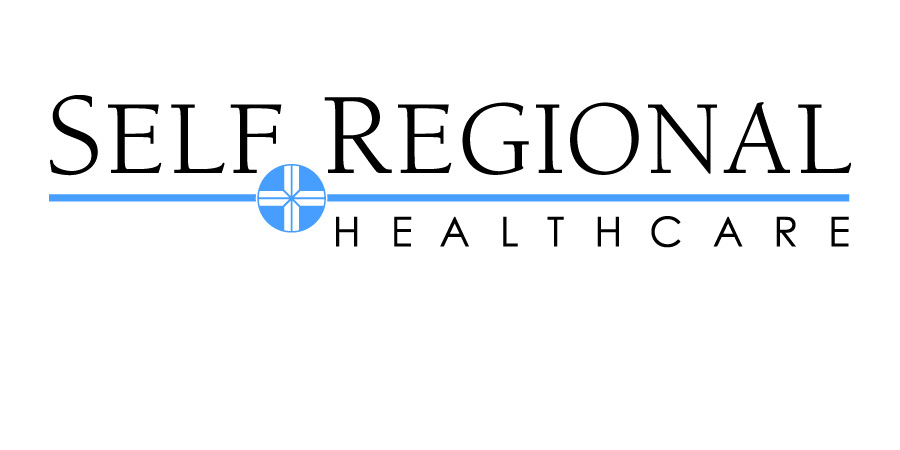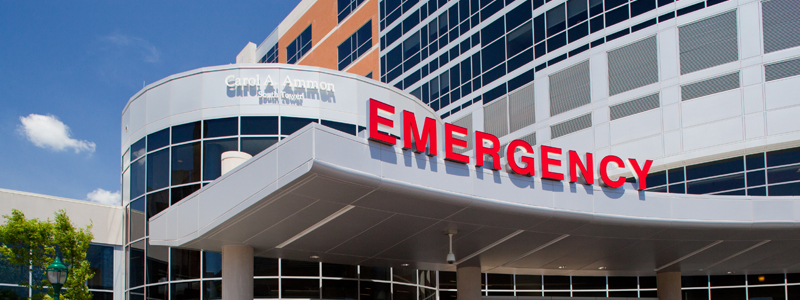Title Page
-
Conducted on
-
Prepared by
-
Location
CoP: Laboratory Services
-
Do you want to review "Laboratory Services" conditions?
482.27 Laboratory Services
-
A-0576 482.27 The hospital must maintain, or have available, adequate laboratory services to meet the needs of its patients. The hospital must ensure that all laboratory services provided to its patients are performed in a facility certified in accordance with Part 493 of this chapter.
-
Interpretive Guidelines §482.27
The hospital must maintain or have available laboratory services whenever its patients need those services. The hospital may make laboratory services available directly, through contractual agreements, or through a combination of direct and contractual services. The scope and complexity of the hospital laboratory service must be adequate to meet the needs of its patients. The hospital must maintain, or have available, adequate laboratory services to meet the needs of its patients at each campus or off-campus location of the hospital. All laboratory services, whether direct or contractual, whether conducted in a lab or in another location, must be provided in accordance with Clinical Laboratory Improvement Act (CLIA) requirements. Every hospital laboratory service must be operating under a current CLIA certificate appropriate to the level of services performed.
The hospital’s laboratory services, including any contracted services, must be integrated into its hospital-wide QAPI program.
Patient laboratory results and all other laboratory clinical patient records are considered patient medical records and the hospital must comply with the requirements of the Medical Records CoP.
482.27(a) Adequacy of Laboratory Services
-
A-0582 482.27(a) The hospital must have laboratory services available, either directly or through a contractual agreement with a certified laboratory that meets requirements of Part 493 of this chapter.
-
Interpretive Guidelines §482.27(a)
The CLIA certification may be accomplished by having one certificate for the entire hospital’s laboratory services, by having one certificate for each laboratory, or by the hospital having a mixture. Whatever the arrangement, all laboratory services must be provided in accordance with CLIA requirements and under a current CLIA certificate, even when those laboratory services take place outside of a lab. -
A-0583 482.27(a)(1) - Emergency laboratory services must be available 24 hours a day.
-
Interpretive Guidelines §482.27(a)(1)
The hospital must provide emergency laboratory services 24 hours a day, 7 days a week. These onsite emergency services may be provided directly by the hospital or through onsite contracted laboratory services. Emergency lab services include collection, processing, and provision of results to meet a patient's emergency laboratory needs.
In a hospital with multiple hospital campuses, these emergency laboratory services must be available onsite 24/7 at each campus.
The medical staff must determine which laboratory services are to be immediately available to meet the emergency laboratory needs of patients who may be currently at the hospital or those patients who may arrive at the hospital in an emergency condition. The emergency laboratory services (procedures, tests, personnel) available should reflect the scope and complexity of the hospital’s operation and be provided in accordance with Federal and State law, regulations and guidelines and acceptable standards of practice.
At a hospital with off-campus locations the medical staff must determine which, if any, laboratory services must be immediately available to meet the emergency laboratory needs of the patients who are likely to seek care at each off-campus location. The emergency laboratory services available must reflect the scope and complexity of the hospital's operations at the location and be provided in accordance with Federal and State law, regulations and guidelines and acceptable standards of practice. The services must be available during the hours of operation of that location. -
A-0584 482.27(a)(2) - A written description of services provided must be available to the medical staff
-
No information available.
-
A-0585 482.27(a)(3) - The laboratory must make provision for proper receipt and reporting of tissue specimens
-
Interpretive Guidelines §482.27(a)(3)
The laboratory must have written instructions for the collection, preservation, transportation, receipt, and reporting of tissue specimen results. -
A-0586 482.27(a)(4) - The medical staff and a pathologist must determine which tissue specimens require a macroscopic (gross) examination and which require both macroscopic and microscopic examinations
-
Interpretive Guidelines §482.27(a)(4)
Laboratory written policies, approved by the medical staff and a pathologist, must state which tissue specimens require a macroscopic examination and which tissue specimens require both macroscopic and microscopic examination.
482.27(b) Standard: - Potentially Infectious Blood and Blood Components
-
A-0592 482.27(b)<br>(1) Potentially human immunodeficiency virus (HIV) infectious blood and blood components. Potentially HIV infectious blood and blood components are prior collections from a donor –<br>(i) Who tested negative at the time of donation but tests reactive for evidence of HIV infection on a later donation;<br>(ii) Who tests positive on the supplemental (additional, more specific) test or other follow-up testing required by FDA; and<br>(iii) For whom the timing of seroconversion cannot be precisely estimated.<br>(2) Potentially hepatitis C virus (HCV) infectious blood and blood components. Potentially HCV infectious blood and blood components are the blood and blood components identified in 21 CFR 610.47.<br>(3) Services furnished by an outside blood collecting establishment. If a hospital regularly uses the services of an outside blood collecting establishment, it must have an agreement with the blood collecting establishment that governs the procurement, transfer, and availability of blood and blood components. The agreement must require that the blood collecting establishment notify the hospital --<br>(i) Within 3 calendar days if the blood collecting establishment supplied blood and blood components collected from a donor who tested negative at the time of donation but tests reactive for evidence of HIV or HCV infection on a later donation or who is determined to be at increased risk for transmitting HIV or HCV infection;<br>(ii) Within 45 days of the test, of the results of the supplemental (additional, more specific) test for HIV or HCV, as relevant, or other follow-up testing required by FDA;<br>(iii) Within 3 calendar days after the blood collecting establishment supplied blood and blood components collected from an infectious donor, whenever records are available, as set forth at 21 CFR 610.48(b)(3).<br>(4) Quarantine of blood and blood components pending completion of testing. If the blood collecting establishment (either internal or under an agreement) notifies the hospital of the reactive HIV or HCV screening test results, the hospital must determine the disposition of the blood or blood component and<br>quarantine all blood and blood components from previous donations in inventory.<br>(i) If the blood collecting establishment notifies the hospital that the result of the supplemental (additional, more specific) test or other follow-up testing required by FDA is negative, absent other informative test results, the hospital may release the blood and blood components from quarantine.<br>(ii) If the blood collecting establishment notifies the hospital that the result of the supplemental (additional, more specific) test or other follow-up testing required by FDA is positive, the hospital must –<br>(A) Dispose of the blood and blood components; and<br>(B) Notify the transfusion recipients as set forth in paragraph (b)(6) of this section.<br>(iii) If the blood collecting establishment notifies the hospital that the result of the supplemental (additional, more specific) test or other follow-up testing required by FDA is indeterminate, the hospital must destroy or label prior collections of blood or blood components held in quarantine as set forth at 21 CFR 610.46(b)(2), 610.47(b)(2), and 610.48(c)(2).<br>(5) Recordkeeping by the hospital. The hospital must maintain --<br>(i) Records of the source and disposition of all units of blood and blood components for at least 10 years from the date of disposition in a manner that permits prompt retrieval; and<br>(ii) A fully funded plan to transfer these records to another hospital or other entity if such hospital ceases operation for any reason.<br>(6) Patient notification. If the hospital has administered potentially HIV or HCV infectious blood or blood components (either directly through its own blood collecting establishment or under an agreement) or released such blood or blood components to another entity or appropriate individual, the hospital must take the following actions:<br>(i) Make reasonable attempts to notify the patient, or to notify the attending physician who ordered the blood or blood component and ask the physician to notify the patient, or other individual as permitted under paragraph (b)(10) of this section, that potentially HIV or HCV infectious blood or blood components were transfused to the patient and that there may be a need for HIV or HCV testing and counseling.<br>(ii) If the physician is unavailable or declines to make the notification, make reasonable attempts to give this notification to the patient, legal guardian or relative.<br>(iii) Document in the patient’s medical record the notification or attempts to give the required notification.<br>(7) Time frame for notification.<br>(i) For donors tested on or after February 20, 2008. For notifications resulting from donors tested on or after February 20, 2008 as set forth at 21 CFR 610.46 and 21 CFR 610.47 the notification effort begins when the blood collecting establishment notifies the hospital that it received potentially HIV or HCV infectious blood and blood components. The hospital must make reasonable attempts to give notification over a period of 12 weeks unless--<br>(A) The patient is located and notified; or<br>(B) The hospital is unable to locate the patient and documents in the patient’s medical record the extenuating circumstances beyond the hospital’s control that caused the notification timeframe to exceed 12 weeks.<br>(ii) For donors tested before February 20, 2008. For notifications from donors tested before February 20, 2008 as set forth at 21 CFR 610.48(b) and (c), the notification effort begins when the blood collecting establishment notifies the hospital that it received potentially HCV infectious blood and blood components. The hospital must make reasonable attempts to give notification and must complete the actions within 1 year of the date on which the hospital received notification from the outside blood collecting establishment.<br>(8) Content of notification. The notification must include the following information:<br>(i) A basic explanation of the need for HIV or HCV testing and counseling.<br>(ii) Enough oral or written information so that an informed decision can be made about whether to obtain HIV or HCV testing and counseling.<br>(iii) A list of programs or places where the person can obtain HIV or HCV testing and counseling, including any requirements or restrictions the<br>program may impose.<br>(9) Policies and procedures. The hospital must establish policies and procedures for notification and documentation that conform to Federal, State, and local laws, including requirements for the confidentiality of medical records and other patient information.<br>(10) Notification to legal representative or relative. If the patient has been adjudged incompetent by a State court, the physician or hospital must notify a legal representative designated in accordance with State law. If the patient is competent, but State law permits a legal representative or relative to receive the information on the patient’s behalf, the physician or hospital must notify the patient or his or her legal representative or relative. For possible HIV infectious transfusion recipients that are deceased, the physician or hospital must inform the deceased patient’s legal representative or relative. If the patient is a minor, the parents or legal guardian must be notified.<br>(11) Applicability. HCV notification requirements resulting from donors tested before February 20, 2008, as set forth at 21 CFR 610.48 will expire on August 24, 2015.
-
Interpretive Guidelines §482.27(b)
This regulation requires the hospital to have a system in place to take appropriate action when notified that blood or blood components it received are at increased risk of transmitting HIV or HCV.
482.27(c) Standard: General blood safety issues
-
A-0593 482.27(c) For lookback activities only related to new blood safety issues that are identified after August 24, 2007, hospitals must comply with FDA regulations as they pertain to blood safety issues in the following areas:<br>(1) Appropriate testing and quarantining of infectious blood and blood components.<br>(2) Notification and counseling of recipients that may have received infectious blood and blood components.
-
No information available.









